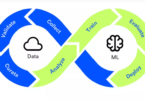You wouldn’t be surprised to know that Artificial Intelligence or AI is one of the fastest-growing fields in technology jobs. LinkedIn confirms this statement in its 2021 ‘Jobs on the Rise’ report by listing AI practitioners among the top 15 fastest-growing job opportunities, with a whopping 32% rise in jobs from 2019 to 2020. Lately, AI has penetrated every industrial sector, and the COVID-19 pandemic only accelerated its adoption. Be it healthcare, education, banking and finance, or the retail sector, all of them delved into AI and deployed it to improve services, digitize business processes and promote remote work.
Many areas that come under AI, like computer vision, natural language processing, machine learning, and speech recognition, are opening a wide range of career possibilities for skilled AI professionals. Universities and other educational institutions are acting proactively to develop advanced Artificial Intelligence course programs to prepare the workforce for future jobs. Some universities offer a master’s degree in AI, while others have designed traditional computer science disciplines with a specialty or research program in AI.
Now, aspirants willing to start a career in AI are often confused about whether to take an online course in AI or register for a master’s program. This article discusses whether a master’s in AI is really worth it and what options do you have for the same.
Why Invest in Learning AI?
You must have heard AI and machine learning making headlines every now and then. Driverless cars and voice assistants like Alexa are two of the top AI-powered applications that must have fascinated you. But this is not enough to lure into learning AI or achieve a master’s degree in AI, for that matter. So, here are some of the top reasons to embark on an AI career.
Secure your career
Technological advancements have never picked such a fast pace as now. The growing automation has already resulted in the loss of many manual jobs, and the future of the workplace would require more digital skills than traditional ones. AI is one such field whose prominence doesn’t seem to reduce any time soon. If you start learning AI today, you can grab the job opportunities available globally and you would be saved from employment insecurity.
Employers seek certified AI talent
A career in AI is relatively new and hiring managers have a hard time finding the right candidates for their open positions. When an individual has a master’s degree in AI or a recognized AI course completion certificate, employers are convinced that the candidate is serious about a career in AI and has gained all the requisite skills. This translates into certification holders getting more preference in interviews than non-certified counterparts.
No need to go back to college
The very first thing a working professional might be concerned about is having to quit the job and take up an academic course to achieve a master’s degree. Well, eLearning platforms have made things easier for you by offering AI master’s programs online. The best part? They have partnered with renowned universities to help you learn from some of the best instructors out there. Harvard University, Purdue University, Georgia Institute of Technology, and the University of Arizona are some of the top players.
Gain practical exposure
Though you may be interested in an AI career, entry-level professionals do not have related practical experience in the field and often fail to demonstrate their skills. A master’s program in AI involves some industry-oriented projects and a capstone project at the end to help learners apply what they have learned throughout the program. Here, they try to solve real-life business problems with real-world data sets and learn to step into the shoes of an AI engineer.
How to Select the Right Institute?
Now if you are convinced to opt for a master’s degree in AI, then you should start exploring the various learning options available. If you have just graduated, you may want to enroll in a full-time on-campus program. However, if you are a working professional, then online learning would suit you best. The top eLearning platforms to consider are Simplilearn, Coursera, edX, and Udacity. You may find courses specific to machine learning as well as AI including computer vision, facial recognition, computer vision, and more.
Simplilearn has partnered with Purdue University and IBM to offer a Post Graduate Program in AI and machine learning. Similarly, Coursera has specializations in AI offered by Stanford University, HSE University, Imperial College London, and IBM Professional Certificate. On the other hand, edX offers MicroMasters programs by Columbia University, Harvard University Professional Certificate, and Massachusetts Institute of Technology (MIT).
Now, based on your career needs, you can select a course and achieve a master’s degree in AI. The course duration will normally vary from 1 to 2 years and most of them would require you to earn some educational credits by attending the classes and completing the associated industry projects. Moreover, their fee would be comparatively lower than an on-campus program. On successful completion, you will achieve a master’s degree with the university logo and a digital badge that can be shared on professional networking sites like LinkedIn to showcase your achievement.






